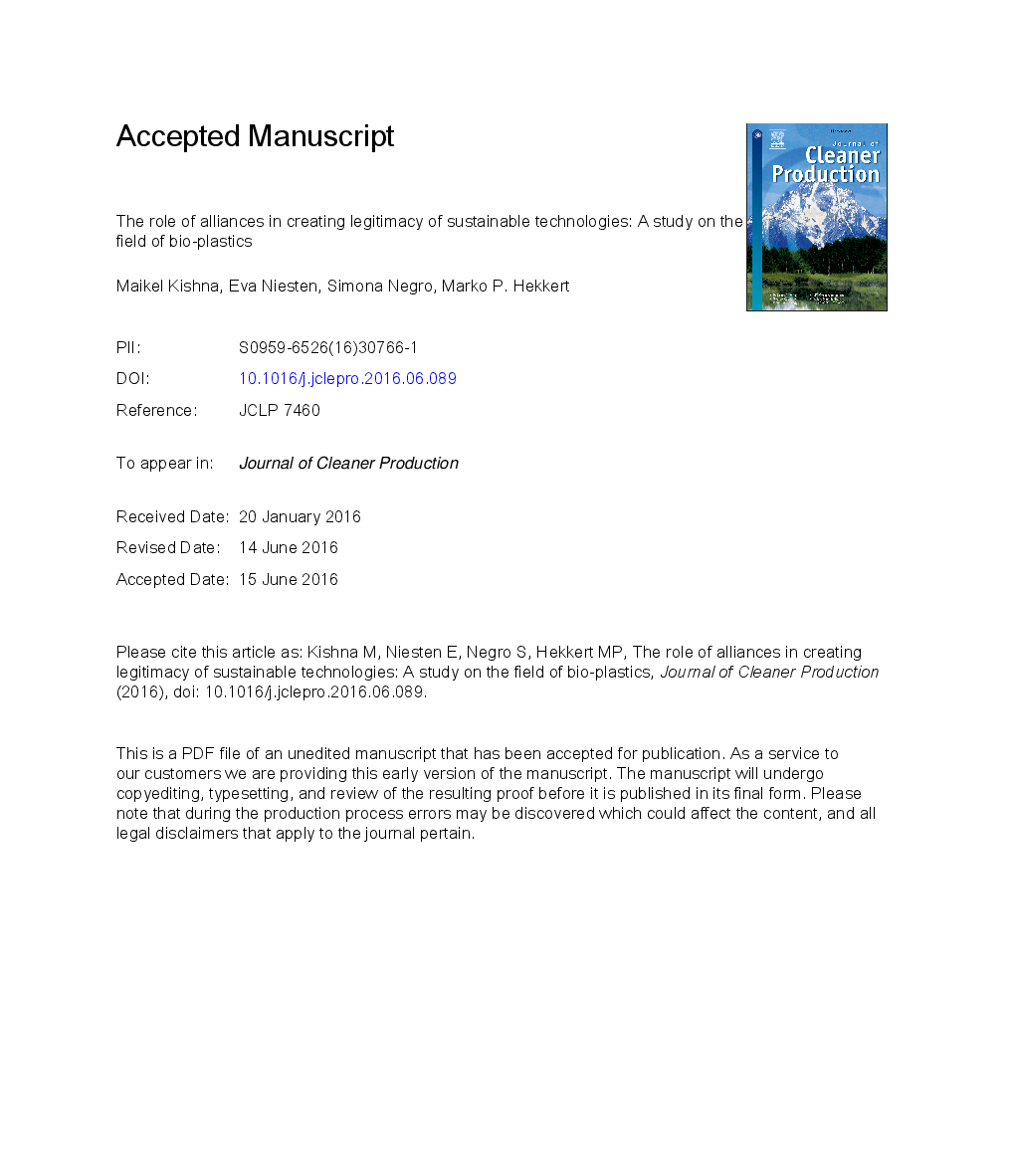ترجمه فارسی عنوان مقاله
نقش اتحاد در ایجاد مشروعیت فن آوری های پایدار: مطالعه در زمینه پلاستیک های زیستی
عنوان انگلیسی
The role of alliances in creating legitimacy of sustainable technologies: A study on the field of bio-plastics
| کد مقاله | سال انتشار | تعداد صفحات مقاله انگلیسی |
|---|---|---|
| 126024 | 2017 | 23 صفحه PDF |
منبع

Publisher : Elsevier - Science Direct (الزویر - ساینس دایرکت)
Journal : Journal of Cleaner Production, Volume 155, Part 2, 1 July 2017, Pages 7-16
ترجمه کلمات کلیدی
اتحادها، مشروعیت تکنولوژی پایدار، بیو پلاستیک،
کلمات کلیدی انگلیسی
Alliances; Legitimacy; Sustainable technology; Bio-plastics;

